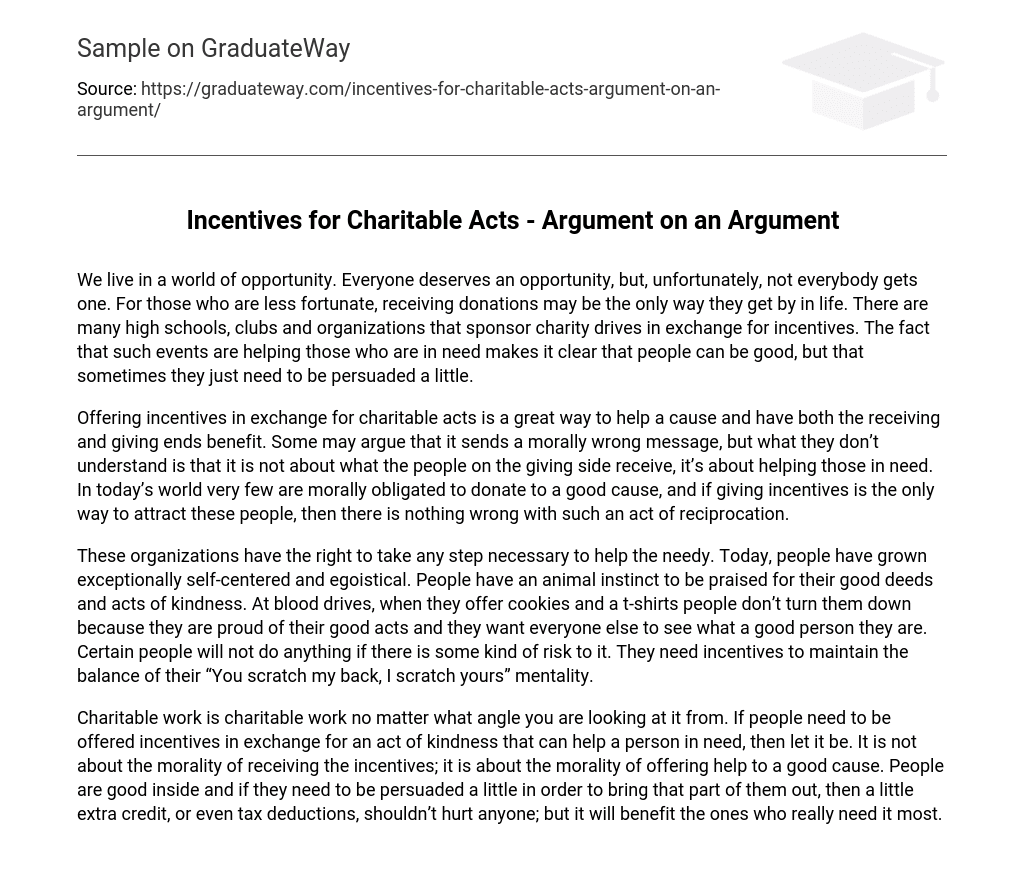In our world, opportunities are not equally distributed. While everyone deserves a chance, not everyone is fortunate enough to receive one. For the less privileged individuals, donations often serve as their saving grace in life. Numerous high schools, clubs, and organizations organize charity drives, offering incentives in return. These events demonstrate that people have the potential for goodness, but sometimes they require a little push to extend their help to those in need.
Utilizing rewards as a means to motivate charitable actions is an efficient approach in aiding a cause and yielding advantages for both the donors and recipients. While some contend that it conveys an incorrect message, they overlook the genuine intention: it is not solely about what the donors acquire but rather about assisting those who require aid. In contemporary society, there is a scarcity of individuals who feel morally obliged to contribute to a deserving cause. Consequently, if providing incentives is the sole method of enticing these individuals, then there is no harm in reciprocating through this means.
These organizations have the authority to provide necessary assistance to those who are in need. In today’s society, individuals have become highly self-centered and driven by a desire for recognition of their kind actions. For example, during events like blood drives, people willingly accept offerings such as cookies and t-shirts as a way to display their generosity towards others. However, some individuals are hesitant to engage in activities that involve certain risks unless they are provided with incentives that align with their belief in reciprocity: “You help me, I’ll help you.”
Regardless of perspective, the core concept of charitable work remains unaltered. If individuals require incentives in exchange for acts of kindness that assist those in need, then it should be allowed. The question at hand is not whether receiving incentives is morally correct; instead, it pertains to the ethics of providing assistance for a worthy cause. Humans possess inherent goodness, and if they necessitate some encouragement to showcase that goodness, then a modest extra reward or even tax deductions should not harm anyone. In reality, it will aid those who genuinely require assistance.





